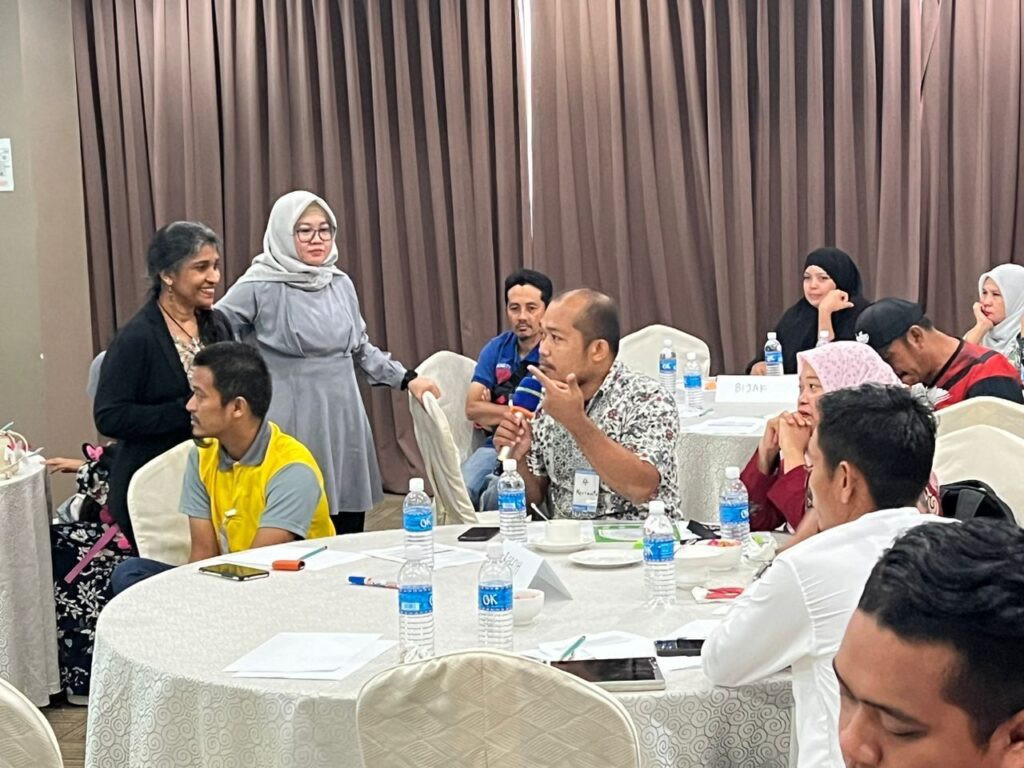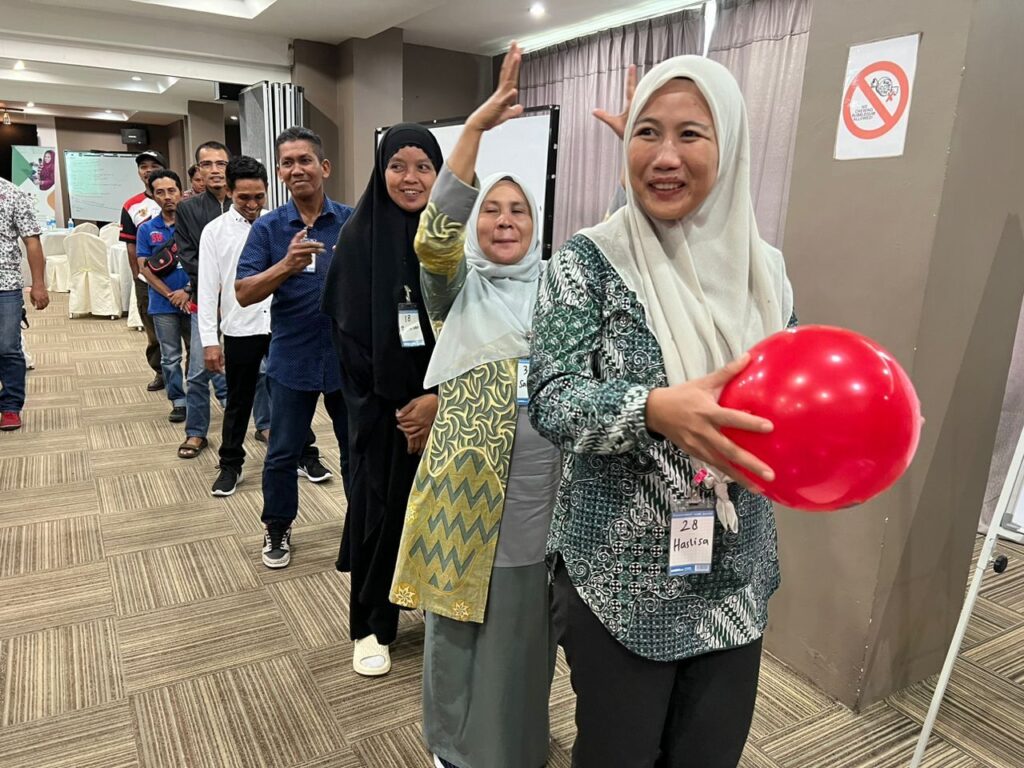Palm oil production in Malaysia employs nearly half a million workers, with 80% being migrant workers, predominantly from Indonesia.1 Sabah is the country’s second-largest palm oil producing state, contributing about 25% of Malaysia’s total palm oil output2. According to the International Organisation for Migration3, Malaysian law restricts specific sectors from allowing spouses and children to accompany migrant workers. Recruitment from countries such as Bangladesh and Indonesia is governed by memoranda of understanding (MOUs).
Despite these regulations, an estimated 50,000 children – primarily of Indonesian and Filipino descent – live in or around oil palm estates and plantations in Sabah.”4 A survey conducted by Malaysia’s Ministry of Plantation Industries and Commodities (MPIC) in 2018 found that 8 in every 1,000 oil palm workers nationwide were in situations of forced labour, and approximately 33,600 children were found to be in child labour conditions.5
The Child Rights Action Hub, part of the MY Voice initiative, has engaged with a group of migrant workers in Sabah to conduct a training of trainers on child labour prevention and remediation (CLPR) to help enhance the community’s capacity to prevent and address child labour within the plantations.
Collaboration between MY Voice and Komunitas Sahabat TKI (KST)
Komunitas Sahabat TKI (KST) was founded by Riswan Abadi, an educator for BMI children in a palm oil plantation in Sabah, Samsul Bahri, a palm oil plantation field supervisor, and Ansar, a field supervisor in a palm oil company. They were concerned with problems experienced by Indonesian Migrant Workers (Buruh Migran Indonesia – BMI) in Sabah. They initiated KST by starting a group WhatsApp in the year 2020 to unite the workers. “We hope that the problems faced by Indonesian workers can be resolved so that they can live a better life,” said Riswan Abadi, who also works closely with the Indonesian Migrant Workers Union Foreign Representative Council (DPLN SBMI).

About the Training of Trainers
In October 2023, KST Sabah participated in MY Voice’s first multistakeholder consultation on child labour remediation models in Tawau, Sabah. Then, in May 2024, four KST members participated in the CLPR Community Focal Point training. Following this, MY Voice proposed a collaboration to train KST members to be CLPR trainers themselves.
The purpose of the training of trainers (TOT) is to equip participants with:
- Knowledge of child rights, child labour risks, methods to prevent child labour via responsible recruitment, and actions to take if children are at risk of child labour or have been employed as child labour; and
- The skills and knowledge necessary to conduct CLPR training for the target community.
Mr. Bambang
TKI WorkerThis was our first TOT session since the Child Rights Action Hub was launched in June 2024. The training was held on October 12-13 in Tawau, Sabah, where KST mobilised 31 participants (18 men and 13 women), including Community Learning Centre teachers, field supervisor or mandor, and mill workers. The participants were selected based on criteria mutually agreed upon by MY Voice and KST, ensuring they live near the palm oil plantation community, were involved in child rights and workers’ advocacy, had experience working with the community, and could commit to conducting at least one CLPR awareness session for their community members.
The two-day TOT covered training skills and techniques, child rights and child labour, child rights and business, child labour remediation, gender-based violence, introduction to the Just Good Work app, introduction to forced labour, and introduction to effective communication.

Relevance of the Training of Trainers to the Migrant Community
All 31 participants indicated that the training was highly relevant to their community. They appreciated the opportunity provided by MY Voice to make child labour remediation programmes accessible to the community. The participants expressed concern about children under 18 living in the plantation, who are particularly vulnerable to child labour situations.
Ibu Wahidah
TKI TeacherPhotos courtesy of: The Centre for Child Rights and Business
References
1 Chu, M.M. 2022. “Malaysia Palm Group Warns of Losses Ahead from ‘severe’ Labour Crunch.” Reuters, June 6. https://www. reuters.com/markets/commodities/malaysia-palm-group-warns-losses-ahead-severe-labour-crunch-2022-06-06/.
2 Reuters, 2020 https://www.reuters.com/article/us-health-coronavirus-malaysia-palmoil-idUSKBN21Q17N/
4 UNICEF, 2023. “Case Study- Migration and Child Protection Risks” https://www.unicef.org/eap/media/13431/file/ASEAN CABM Malaysia case study.pdf
5 Andika Wahab, Muhammad Faliq, 2022. “Situation Analysis Labour Issues in the Palm Oil Sector, Sabah, Malaysia” https://www.ukm.my/ikmas/wp-content/uploads/2022/09/Final-Report1-27-Sep-2022.pdf
